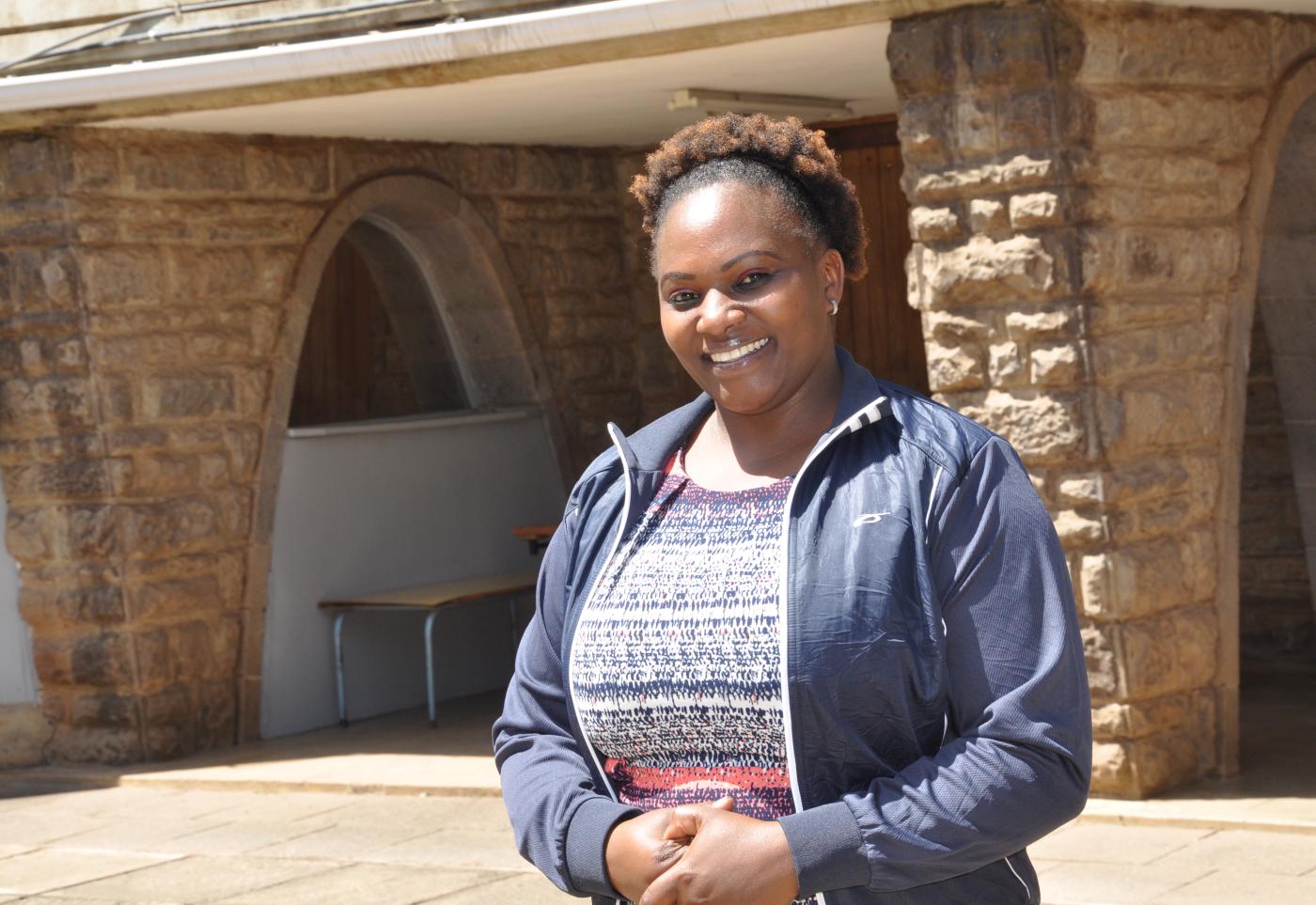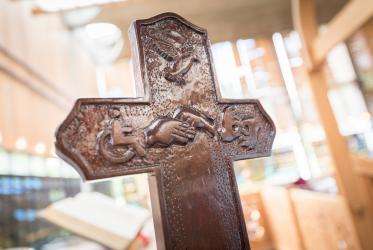For seven years, the 34-year-old mother of two girls, has served in the church’s disability ministry rising to lead the department in 2019. Here, she offers pastoral care, including prayers and counselling services to the deaf, who have needs related to family struggles, death, or marital affairs.
Every Sunday, she attends all the worship services, providing Kenyan sign language interpretation to the deaf in the church and hundreds of others who follow the church services online across the globe.
“We have not preached until the deaf have heard the gospel,” asserts Kihumba, a sign language interpreter and an advocate for deaf mothers’ maternal and mental health.
Last year in September, she attended the World Council of Churches 11th Assembly in the Germany city of Karlsruhe, where she later provided sign language interpretation for the WCC executive committee.
Born in 1989 in Nyeri County in Central Kenya, Kihumba grew up in different parts of Kenya. Her encounter with the deaf started as a student at the Rev. Muhoro School for the Deaf, a national school for the deaf in Mukurweini, an area in the county.
“At first—in school—it was difficult to learn sign language, but I acquired it after getting very close deaf friends,” she says.
Kihumba holds bachelor’s degrees in communication development and public relations, and a diploma in counseling psychology. She is currently pursuing a master's degree in the latter.
She made the decision to be liaison between the deaf and the church after realizing that, due to language barriers, many deaf people do not interact with the Bible at an early age.
“Sometimes it's a really big struggle preaching to the deaf because of their backgrounds. Deaf people lack information and especially from their families. At least 98 percent of families with deaf people don’t not have sign language knowledge,” Kihumba explains.
But despite the challenges, Kihumba says there is some change, with a good number of the deaf being able to interact with the Bible and understand the real meaning of the Christian faith. She points at deaf pastor, Rev. George Obonyo, who attended a Bible theological college and rose to become disability leader in the Presbyterian church of East Africa. Kihumba attended the college with him as his interpreter.
“I have attended Bible study fellowships for the deaf which have made them grow in faith,” she says.
As she works for the church, Kihumba also runs Talking Hands, Listening to Postpartum Depression (THLEP), an organization which she started in 2021, to help deaf women walk through the journey of motherhood and break the silence on postpartum depression. The organization was born out her personal experience with postpartum depression, which struck towards the end of 2019 and the beginning of 2021.
“It made me think more about deaf women. During this period, I realized the deaf women go through a lot of struggle in their maternal journey,” she explains.
In a short period of her work with postpartum depression among the deaf, Kihumba has received awards, including the International Women’s Day Zuri award in the health category, BBC’s 100 Most Influential Women in the World, and 30 Bold Voices of Women in Africa—all in 2022.
“For these, I am forever grateful to God,” she says.
On United Nations International Women’s Day celebrated on 8 March, Kihumba asks the world to remember deaf women who are often excluded.
“If normal women are struggling, what about deaf women whose voices are low and need amplifying?” she queries, while calling for safe spaces to increase the voices of deaf women.







